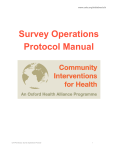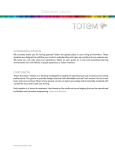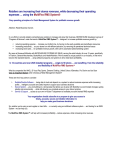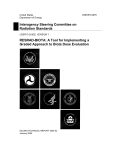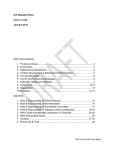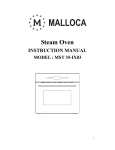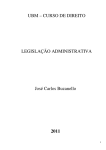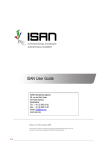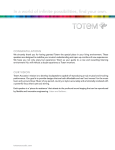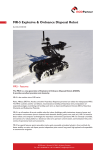Download 20 Rules of Plain English
Transcript
Module Five 20 Rules of Plain English 55 MODULE 5 20 Rules of Plain English NOW that you’ve mastered the basics of plain English, you’ll want to learn more of the rules. This module covers 20 of the most important rules to remember as you write. These are the rules that most writing styleguides agree on. Of course, rules are meant to be broken, and these are no exception. The rules are meant to provide you with useful guidelines to help you make writing decisionsnot to be followed slavishly. 20 key rules: • • • • • • • • • • • • • • • • • • • • write in parallel ways keep related words together use prepositions with care distinguish “which” from “that” avoid surplus nouns avoid noun and modifier strings use pronouns with care avoid slang be gender neutral be specific avoid clichés place modifiers carefully avoid unnecessary qualification use contractions be concise avoid foreign words capitalize properly abbreviate with care write numbers consistently ignore some old rules 56 Sharpening Your Writing Skills Write in parallel ways Parallelism means being consistent in how you structure your writing. Once you establish a pattern, use it. Parallelism makes reading faster and easier. Keep items in a list parallel. Each item should be constructed in a similar way and start with the same kind of word, such as a noun or verb. If one item is a whole sentence, they all should be. Examples: Parallel sentences Example: Not parallel list Originally, writing was taught by analysis, while now a synthesis approach is used. (Not parallel) Students must bring the following items: Originally, writing was taught by analysis; now it is taught by synthesis. (Parallel) The evaluation report was written outlining the case study and with a list of contributors. (Not parallel) The evaluation report was written outlining the case study and listing the contributors. (Parallel) • • • styleguide bring pencils and pens You should bring a word processor. Example: Parallel list Students must bring the following items: • • • styleguide pencils and pens word processor Exercise 17: Make the last three items parallel to the first The plan is deficient because: • the budget was not prepared • Two major cost items were not identified. • staffing not approved • other errors Module Five 20 Rules of Plain English 57 Keep related words together Keep related words together—otherwise confusion and ambiguity may result. Examples She noticed a cigarette burn on the desk that was right in the centre. (No, right in the centre of what?) She noticed a cigarette burn on the centre of the desk. (Yes) He wrote three pages on how to use the computer for the user manual. (No, not just for the computer manual) He wrote three pages for the user manual on how to use the computer. (Yes) Try one The president said she hoped all employees would give generously to the charity at a staff meeting today. 58 Sharpening Your Writing Skills Use prepositions with care Prepositions are words that connect or relate nouns and pronouns to other words. They can relate things spatially, in time, or figuratively. Some common prepositions: • • • • • • • • • about at beneath by of on through to with • • • • • • • • • according to across down for into next to on top of over up For years, many students were told not to end sentences with prepositions (a dangling preposition). This is a rule that you should ignore. English has always had sentences that end with prepositions. Examples That’s a behaviour we can’t put up with. That’s an area we don’t want to get into. was, “That is the sort of English up with which I will not put.” His reply pokes fun at the awkward sentences that often result if you try to avoid ending a sentence with a preposition. Examples of bad fixes That’s an area into which we don’t want to get. He’s the consultant about whom you spoke. This is the styleguide about which they referred. If your sentences sometimes sound like these, are you avoiding placing a preposition at the end? Many writers do, but don’t realize that’s what they’re doing. Omit prepositions if you can without changing the meaning. In the following examples, the underlined prepositions are unnecessary and can be omitted. Examples He’s the consultant you spoke about. All of the managers went to the meeting. This is the styleguide they referred to. We moved the files off of the server. Winston Churchill was once corrected by a senior army officer for ending a sentence with a preposition. His reply The study area is too near to the cafeteria. We began at about 9:00 a.m. Module Five 20 Rules of Plain English 59 Distinguish “which” from “that” Use “which” to introduce nonrestrictive clausesclauses that don’t narrow or restrict the meaning. Such clauses could be put into parentheses or removed entirely without altering the essential meaning of the sentence. parentheses, it is preceded with a comma. But because “that” introduces a clause that’s integral to the sentence and could not be placed in parentheses, it is not preceded with a comma. Use “that” for restrictive clausesclauses that narrow or restrict the meaning. Such clauses are always integral to the sentence, and could not be put into parentheses or removed entirely without altering the essential meaning of the sentence. Example “Which” and “that” are punctuated differently. Because “which” introduces a clause that could be placed in We rejected the last proposal, which was sent by fax. (The rejected proposal happens to have been faxed) We rejected the last proposal that was sent by fax. (But not necessarily the last proposal) Exercise 18: “Which” and “that” Review each sentence and decide if “which” and “that” are used correctly: The manager plans to take us to the new Thai restaurant that is in our old office building. Penticton, which lies within the Okanagan Valley, is shown on the attached map. The proposal, which we liked best, was from Acme Printing and Binding. The Committee reviewed the best plans that were submitted. We could not find the digital file, which was missing. 60 Sharpening Your Writing Skills Avoid surplus nouns Avoid nouns that don’t add meaning or precision. Watch out for: • • • • approach area concept condition • • • • location environment situation type Example They were interested in the decentralized decision-making concept. (No) They were interested in decentralized decision making. (Yes) Try one The meeting was delayed by the courier shortage situation. Avoid noun and modifier strings Avoid stringing nouns or modifiers together. Even two-word strings can be taken in several ways. How many different meanings can you think of for “management option”? Instead, unstack strings to make the meaning clear. Before you use strings, ask yourself if all your readers will know what you’re talking about. Instead of… Write… component reference designators marketing plan analysis long-range failure prevention program designators for referring to components analysis of the marketing plan long-range program for preventing failures areas where users typically have problems typical user interface problem area Module Five 20 Rules of Plain English Exercise 19: Rewrite the following noun and modifier strings so their meaning is clear problem responsibility changes ad hoc report generation utility obsolete cardholder file operator-induced failure-rate increase problem non-literate personnel manager 61 62 Sharpening Your Writing Skills Use pronouns with care A pronoun is a word that represents a noun. The noun that it refers back to is its antecedent. Here are some common pronouns: • • • • I you he she • • • • they which them their • • • • it this that one Pronouns force readers to remember the antecedent. In some cases, the antecedent may not be clear. Example The manager’s expense reports were incomplete and were beyond the per diem rates set out in the Superintendent’s policy guidelines. This prevented them from being processed. (Antecedents not clear) The manager’s expense reports were incomplete and were beyond the per diem rates set out in the Superintendent’s policy guidelines. The lack of completion prevented the reports from being processed. (Clear) Personal pronouns Don’t be afraid to use personal pronouns, particularly “I,” “we,” and “you.” They give your writing a natural human quality. See Person, page 115). Some writers get confused between subjective and objective cases of pronouns. Example I gave him the file, but he gave me nothing. (Okay) Bob and me went over the figures together (No, “Bob and I”) The above example is confusing because of the compound subject “Bob and me.” In this case, you can check the pronoun “me” by temporarily omitting “Bob.” List of personal pronouns First person Singular Plural Second person Singular Plural Third person Singu Masculine lar Feminine Neutral Plural Subjective I we you you he she it they Objective me us you you him her it them Possessive my/mine our/ours your/yours your/yours his hers its theirs/theirs Module Five 20 Rules of Plain English 63 Avoid slang Avoid slang (also known as colloquialisms)words, or uses of accepted words, that are not generally considered proper. Many commonly accepted words began as slang, but have come into general use. When you decide that a word is acceptable will depend on how liberal or conservative you are with the language, and how formal your document is. Examples of slang It was cutting-edge technology. Cursor over to the right of the screen. His presentation was totally radical. Hey, dude, look at these figures! Some writers will use slang, but place it in single quotes. Here’s what Strunk and White, authors of The Elements of Style, have to say about this practice: If you use a colloquialism, or a slang word or phrase, simply use it; do not draw attention to it by enclosing it in quotation marks. To do so is to put on airs, as though you were inviting the reader to join you in a select society of those who know better. New words to consider: (ak wa deks’ trus) adj. Possessing the ability to turn a faucet on and off with your toes. AQUADEXTROUS (kar’ pur pet u a shun) n. The act, when vacuuming, of running over a string or a piece of lint at least a dozen times, reaching over and picking it up, examining it, then putting it back down to give the vacuum one more chance. CARPERPETUATION (dis kon fekt’) v. To sterilize a piece of candy you dropped on the floor by blowing on it, assuming this will somehow remove all the germs. DISCONFECT (el bon’ iks) n. The actions of two people manoeuvring for one armrest in a movie theatre. ELBONICS (frust) n. The small line of debris that refuses to be swept onto the dust pan and keeps backing a person across the room until he or she finally decides to give up and sweep it under the rug. FRUST (lak’ toe man gyu lay’ shun) n. Manhandling the “open here” spout on a milk container so badly that one has to resort to the illegal side. LACTOMANGULATION (pehp ee ay’) n. The waiter at a fancy restaurant whose sole purpose seems to be walking around asking diners if they want ground pepper. PEPPIER 64 Sharpening Your Writing Skills Be gender neutral Don’t make assumptions about gender. If you’re talking about all managers, don’t use “he” or “she” or “his” or “hers” unless you know that it will always be one gender or the other. Avoid gender-specific nouns. Many new gender-neutral nouns have entered the language in the last few decades. Here are just a few: Gender specific Gender neutral chairman fisherman actress fireman waitress delegates and their wives workman chair or chairperson fisher actor firefighter server delegates and their spouses worker Many writers run into trouble with personal pronouns because English does not have singular gender-neutral personal pronouns. “He,” “his,” “she,” and “hers” are all gender specific. Pronouns such as “they,” “their,” and “them,” while neutral, must refer back to plural antecedents. Example The manager (antecedent) must submit his (pronoun) budget to head office. (Gender specific) The managers must submit their reports to head office. (Gender neutral) The manager must submit the report to head office. (Pronoun omitted) Use these tactics to avoid genderspecific pronouns, or worse, awkward constructions like “he/she.” • Repeat the noun (despite what your English teacher may have said, don’t worry about using the same word over again). • If appropriate, make the antecedent plural so you can use “they,” “them,” or “their” (for example, talk about “clerks” instead of “the clerk”). • Drop the pronoun entirely, or re-cast the sentence so that a pronoun is not necessary. Module Five 20 Rules of Plain English 65 Be specific Avoid abstract or inexact terms. In business, your readers are looking for solid, descriptive informationfacts, figures, and directions. Exercise 20: Revise these sentences to replace the general and the inexact with the exact and the concrete Mud the gyproc with a thin layer of filler, then wait for awhile before sanding. To ensure that the deadline can be met, the draft must be finished quickly. Some staff experienced computer problems. Turn the bolt until it’s quite tight. Avoid unnecessary expenditures. Be aware of suspicious transactions. 66 Sharpening Your Writing Skills Avoid clichés Clichés are time-worn phrases that have lost their original freshness, and can usually be replaced with one or two simple words. Many of the more colourful clichés, such as “let’s not beat around the bush,” have lost their original literal meaning. While readers know this cliché means “let’s get to it,” most could not explain the significance of the “bush” or the act of “beating.” Exercise 21: Replace the following clichés with everyday words please feel free to call between a rock and hard place in connection with with regard to six of one, half a dozen of the other with respect to easier said than done as already stated pursuant to your letter all things considered enclosed herewith is to say the least to explore every avenue in the neighbourhood of to a certain extent as a matter of fact suffice it to say hit the nail on the head the fact of the matter is we beg to acknowledge avoid clichés like the plague Module Five 20 Rules of Plain English 67 Place modifiers carefully Watch where you place modifiers, such as “only,” “almost,” “already,” “even,” “just,” “nearly,” “merely,” and “always.” Consider how the placement of one of these small words can alter the meaning of the sentence. Example The company wants to negotiate the union’s offer. Examples They just wanted a time extension. (No) They wanted just a time extension. (Better) They almost spent five days writing the report. (No) They spent almost five days writing the report. (Yes) Only the company wants to negotiate the union’s offer. Try one The company wants only to negotiate the union’s offer. The annual report only provides yearend figures. The company wants to negotiate only the union’s offer. The company wants to negotiate the union’s only offer. The company wants to negotiate the union’s offer only. From Monday’s classified ads: From Tuesday’s classified ads: 68 Sharpening Your Writing Skills Avoid unnecessary qualification Don’t qualify words that don’t need to be qualified: • • • • • • • • • • • totally committed completely devoted utterly rejected perfectly clear entirely finished quite precise radically new totally compatible somewhat unique relatively precise partially committed Use contractions Contractions are words formed by joining two words together and dropping some letters. Use contractions to give your writing an informal, conversational tone. Without them, your writing will sound formal and maybe a bit stilted. You may want to avoid using contractions in formal documents, such as legal contracts or annual reports, or where you want to emphasize the words. For example, “You will go to the doctor!” Common contractions can’t don’t I’d I’ll I’m it’ll it’s she’d/he’d she’ll/he’ll she’s/he’s there’s they’ll they’re we’re won’t you’ll you’re cannot do not I would I will I am it will it is she would/he would she will/he will she is/he is there is they will they are we are will not you will you are Module Five 20 Rules of Plain English 69 Be concise Remove all unnecessary words to keep your writing as short as possible. You may find that your first draft contains unnecessary wording or redundant expressions. Take the time to weed out these space wasters. Your readers will thank you. Ways to reduce words: • understand what your readers need • stick to essential information and skip the marginal details • use active verbs • use everyday words • avoid redundant expressions, such as “abundantly clear” • avoid clichés, such as “in the neighbourhood of” Ways not to eliminate words or to make it look like fewer words: • drop articles and verbs (see Abbreviated scientific style, page 7) • use acronyms instead • make the type smaller than 10 points • reduce line spacing or widen the text column The chances of someone reading your writing are inversely proportional to its size. Signs and Notices From Around the World: Leipzig Elevator Swiss Inn 70 Sharpening Your Writing Skills Avoid foreign words Avoid foreign words in your writing, unless they have come into common use or there’s no substitute. Spell them out in full: Abbreviation English equivalent e.g. “for example” or “for instance” i.e. “that is” or “that is to say” etc. “and so on” or introduce the list with “such as” Exercise 22: What do these foreign words and phrases mean? pro bono gratis ipso facto c’est la vie tout fini savoir faire Avoid Roman numerals—many of your readers will get confused. je ne sais quoi Avoid Latin abbreviations. Most of your readers won’t know the words that these terms abbreviate. In particular, many people confuse “e.g.” and “i.e.” Exercise 23: What Latin words do these abbreviations stand for? e.g. i.e. etc. Exercise 24: Translate these numbers IX M CM XC MCMXCIX MM Module Five 20 Rules of Plain English 71 Capitalize properly Capitalize proper nouns onlynames of people, objects, and entities. Don’t capitalize a word because you think it’s important or you want it to stand out. Capitalization helps readers distinguish the names of things from the descriptions of things. Some capitalization varies depending on local practice. For example, some organizations usually capitalize the following words: • • • • Board Act Corporation Company Exercise 25: List 10 types of things that should be capitalized 1. 2. 3. 4. 5. 6. 7. 8. 9. 10. Exercise 26: Should these be capitalized? Review the following and decide if they’re capitalized correctly: • • • • • • • • • • • • • • • Audit Of Financial And Management Practices (title of report) Kootenay regional district the Regional District (referring to above) district management staff the transportation of dangerous goods act the Act (referring to above) lower mainland greater Vancouver Northwestern British Columbia we audited three Ministries the insurance corporation of British Columbia the Corporation (referring to ICBC) the Board heard three submissions the Manager, Human Resources the manager of human resources 72 Sharpening Your Writing Skills Abbreviate with care Abbreviations, acronyms, and initialisms, referred to here simply as “abbreviations,” are just code to those who don’t know them, so use them with care. While they may make for quick communications among those in the know, they’re a problem particularly for newcomers and novices. Example The ADM cc’d the Mgr. ISD on the email to the dept. reps re: the LCDs, and attached the SOP on PDFing POs (Form 223). (Avoid spell them out) Tips on using abbreviations: • use as few as possible, and only when readers will understand them • never coin any of your own • avoid abbreviations of foreign words, such as “i.e.,” “e.g.,” and “etc.”use the English equivalents • spell them out the first time you use them • form the plural by simply adding an “s”don’t use an apostrophe unless it would be confusing (for example, “CRTs” but “GI’s”) • generally, drop periods unless it would be confusing, or it’s accepted practice (“BC,” “IBM,” “COD,” “ft”) • always use periods for “Mr.,” “Mrs.,” “Ltd.,” “Co.,” and “Dr.”it’s accepted practice Did you know? Though the term “abbreviations” is used here to cover abbreviations, acronyms, and initialisms, the following are definitions of each. Abbreviation – a shortened form of a word, such as “ft.” Acronym – composed of the initial letters or parts of a compound term that is usually read as a single word, rather than letter by letter, such as “scuba” (self-contained underwater breathing apparatus). Initialism – composed of the initial letters or parts of a compound term, but usually read letter by letter, rather than as a single word, such as “rpm” (revolutions per minute). Module Five 20 Rules of Plain English 73 Write numbers consistently • if one number in a sentence is 10 or greater, then use figures for all numbers (for example, “4 apples, 5 oranges, and 12 pears”)—except for “one,” which is always spelled out • always spell out a number used at the beginning of a sentence • form plurals of numbers by adding “s” (for example, “747s”) Here are some of the rules of English usage that you can safely ignore in business writing: • avoid dangling prepositions (see Use prepositions with care, page 58) • • vary sentence structure to maintain reader interest (see Active and passive verbs, page 50) • vary sentence length (see Sentence length, page 42) • vary choice of wordsnever use the same word more than once or twice on the same page (see Word choice, page 44) • never start a sentence with a conjunction, such as “because” or “and” Guidelines for using numbers in text: • spell out numbers from one through nine • use figures for 10 and greater, except numbers rounded to millions (for example, “10 million”) Ignore some old rules don’t use personal pronouns, such as “I,” “we,” or “you,” except in informal documents (see Writing points of view, page 39, and Use pronouns with care, page 62) • don’t use simple, everyday words use your thesaurus and find an impressive one! (see Word choice, page 44) • don’t use contractions (see Use contractions, page 68) 74 Sharpening Your Writing Skills Why English is a crazy language Let’s face it—English is a crazy language: • If you have a bunch of odds and ends and get rid of all but one of them, what do you call it? • There is no egg in eggplant, nor ham in hamburger. • • There is neither apple nor pine in pineapple. If teachers taught, why didn’t preachers praught? • • English muffins weren’t invented in England, nor French fries in France. If a vegetarian eats vegetables, what does a humanitarian eat? • • Sweetmeats are candies, while sweetbreads, which aren’t sweet, are meat. Sometimes I think all the English speakers should be committed to an asylum for the verbally insane. • In what language do people recite at a play and play at a recital? • How can a slim chance and a fat chance be the same, while a wise man and a wise guy are opposites? • You have to marvel at the unique lunacy of a language in which your house can burn up as it burns down, you fill in a form by filling it out, and an alarm goes off by going on. • English was invented by people, not computers, and it reflects the creativity of the human race, which, of course, is not a race at all. • That is why when the stars are out, they are visible, but when the lights are out, they are invisible. • We take English for granted. But if we explore its paradoxes, we find that quicksand can work slowly. • Boxing rings are square. • A guinea pig is neither from Guinea, nor is it a pig. • Why is it that writers write but fingers don’t fing, grocers don’t groce, and hammers don’t ham? • If the plural of tooth is teeth, why isn’t the plural of booth beeth? • One goose, two geese. So one moose, two meese? One index, two indices? • Doesn’t it seem crazy that you can make amends but not one amend? You can have noses that run and feet that smell?






















